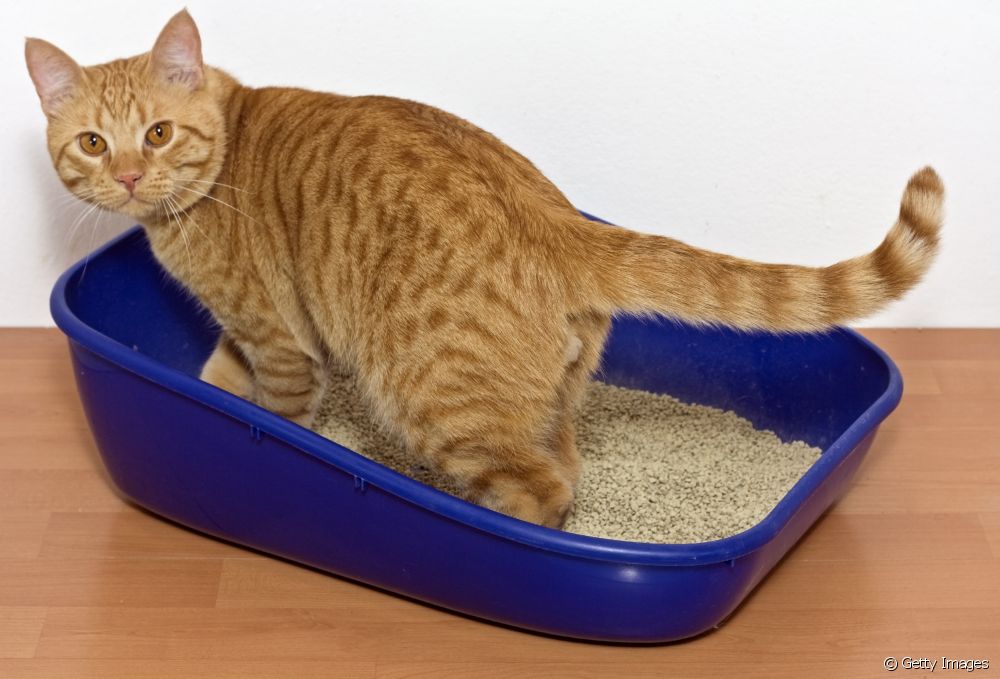Your cat can't defecate: vet explains the causes and what to do

Table of contents
Frequent bowel movements are an indication of the health of a cat's intestines. Many owners are unsure what to do when they notice that their cat is unable to defecate. This can be associated with a number of diseases and even behavioural issues. Paws of the House talked to veterinarian Vanessa Zimbres, from the Gato é Gente Boa clinic, to understand what makes cats have difficulty evacuating and give some tips on what to do about the problem. check out!
See_also: Canine ehrlichiosis: 10 facts about the disease caused by ticksHow to identify that the cat cannot defecate?
Identifying that the cat is not defecating may seem simple, but some guardians may confuse the situation that the feline is going through. Veterinarian Vanessa Zimbres reported how common it is for the guardian to think that the cat is straining to defecate, when in fact he is not able to urinate or vice versa.
The clearest signs that the cat cannot defecate is when the pet goes to the litter box and is forcing and also vocalizing. "Usually the tutor will identify that he is not finding more feces in the box, or when he notices less quantity. It may be a cat that used to poop twice a day and is doing it once ", explains the veterinarian. It may also happen that the tutor observes aless frequent need to clean the litter box. Any small sign should already trigger the alert.

My cat can't defecate: what to do?
But after all, what to do when the cat can't defecate? The veterinarian warned how necessary it is for the guardian to take the kitten to the veterinarian to identify the reason for the problem. The clinical examination is very important, especially to diagnose serious problems, which require specific and adequate treatment to improve the animal's health.
The veterinarian also warned about the danger of attempting home therapies without the recommendation of a professional. "The cat can get even worse because of a medication that was used in the wrong way. What we never recommend is the use of mineral oil, which many guardians use thinking that there is no problem. When you are going to give the mineral oil to the cat, you run the risk of itThe cat will salivate excessively, dislike it, try to run away and end up aspirating the oil. Once this mineral oil is aspirated and goes into the lung, it will never come out again. The cat will have foreign body pneumonia, it will develop into fibrosis. Usually this type of pneumonia leads to death because there is no way to clean this lung. If the guardian cannot identify what is happening, it is better to eliminate it.do nothing and really seek professional help," warns Vanessa.
See_also: What are the main characteristics of the Lhasa Apso puppy?Eating a diet rich in fiber and proper hydration helps to improve (and even prevent) the problem
On the other hand, there are some natural ways to help a cat that cannot defecate. The most common cause of the problem is a lack of fiber, so increasing fiber in the diet can help when the cat cannot defecate. Hydration is also very important and the main tip is to offer a wet food mixed with some fiber food supplement for the animal.
The increase in fiber intake can be solved with a simple cat grass. "There is also the option of offering a kibble for long-haired cats, which has a higher fiber content," said the professional. Keeping the litter box always clean, deworming up to date and offering fresh and clean water at will for the feline is also very important to avoid the problem.
Cat can't defecate: what diseases are associated with this problem?
There are a number of diseases that can leave a kitten unable to defecate. In addition to clinical conditions, some behavioral aspects can also contribute to the complication. Intestinal obstruction in cats, colitis, irritated bowel, fecaloma, hairballs, chronic kidney disease, dehydration and worms are some of the health problems that can leave felines with difficulty to defecate.In older cats who have suffered trauma or are underweight, joint pain can cause them to avoid defecating to avoid discomfort. In this case, the ideal is to change the litter box for a model with lower edges so that he can get in and out without making too much effort.

